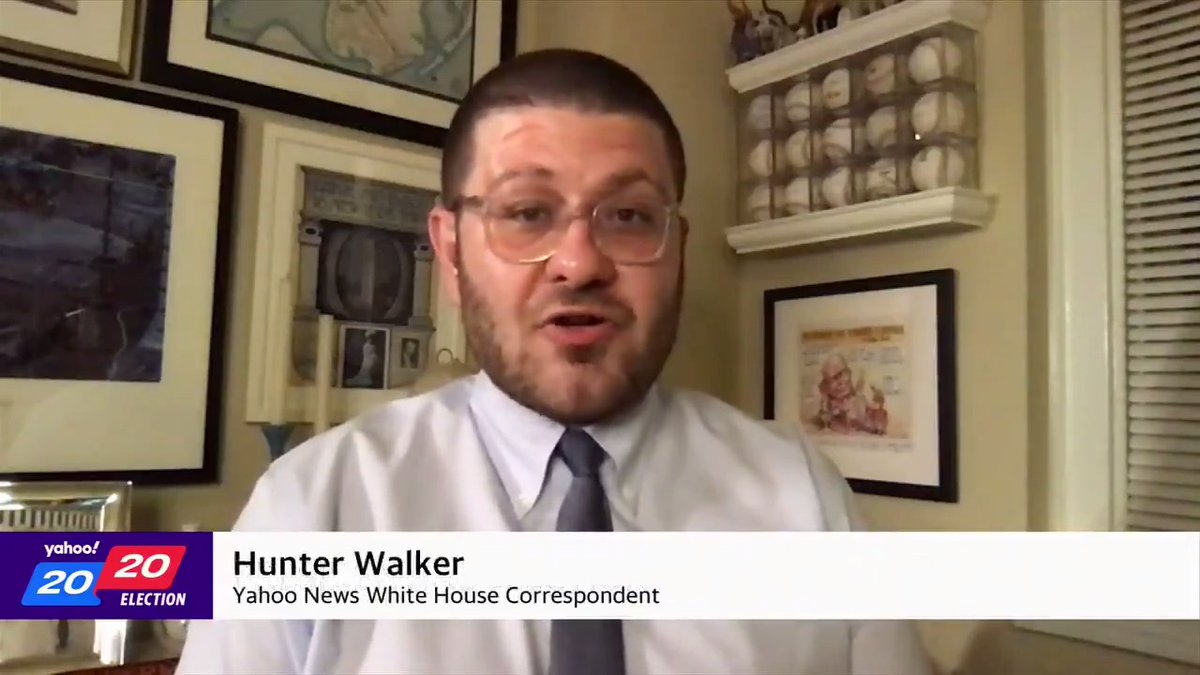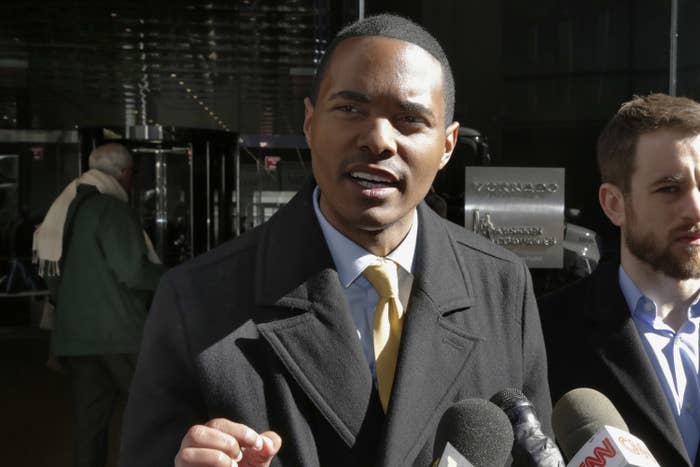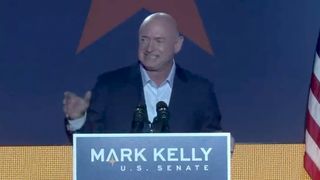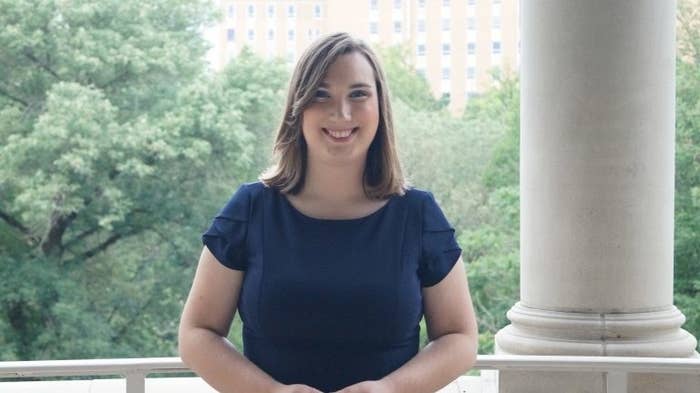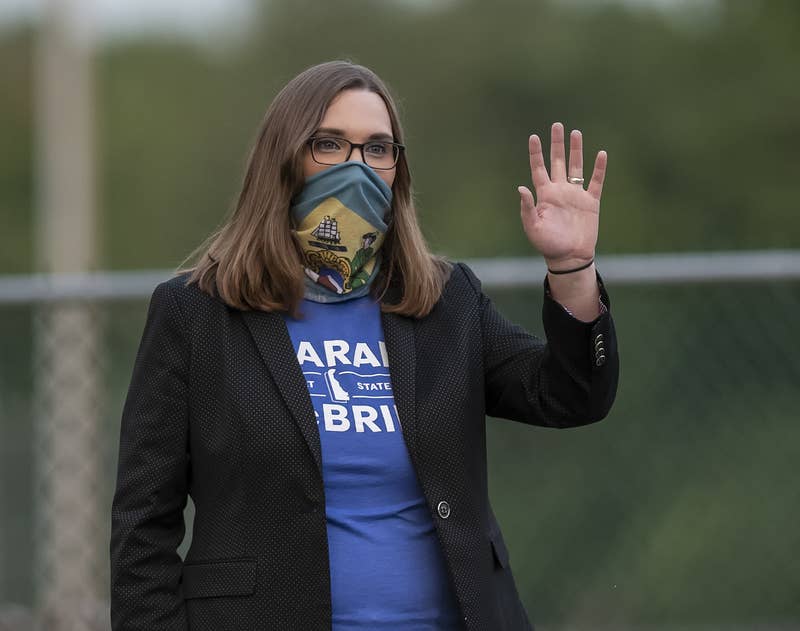AOC criticized Democrats for not trying hard enough with Latino voters, hours after Biden lost Florida

© Tom Williams/CQ Roll Call
Rep. Alexandria Ocasio-Cortez attending a House Financial Services Committee hearing on Wednesday, July 17, 2019.
New York Rep. Alexandria Ocasio-Cortez said on Tuesday night that she had been "sounding the alarm" about Democratic vulnerabilities with Latino voters.
It came after Joe Biden lost Florida, and polling suggested that many Latino voters had given their support to President Donald Trump.
"The necessary effort simply hasn't been put in," Ocasio-Cortez tweeted.
President Donald Trump won the state in a tight race, with 51.21% of the vote, in a result declared late Tuesday.
Democratic Rep. Alexandria Ocasio-Cortez said that her party made too little effort to secure Latino votes, in a swift rebuke after Joe Biden lost in Florida on election night.
President Donald Trump's tight victory in the state, with 51.21% of the vote, was declared Tuesday evening.
A few hours later, Ocasio-Cortez tweeted a video clip of a commentator noting how the issue of Democratic outreach with Latino voters is "one of the big stories in Florida."
Speaking on a webcast of Yahoo Finance's election coverage prior to the Florida result, journalist Hunter Walker had said: "Progressive allies of Biden were raising alarms about this over the summer. The Biden campaign did do a little bit more Latino outreach, but he has really struggled on that front."
It is unclear whether he had been directly referring to warnings from Ocasio-Cortez, a progressive Democratic representative. But in her tweeted commentary alongside the video, she wrote that she had been "sounding the alarm" about the situation.
The New York representative wrote: "I won't comment much on tonight's results as they are evolving and ongoing, but I will say we've been sounding the alarm about Dem vulnerabilities w/ Latinos for a long, long time.
"There is a strategy and a path, but the necessary effort simply hasn't been put in."
Florida is a crucial state in the presidential election, with 29 electoral college votes and a recent history of tight races.
Barack Obama's 2012 narrow victory there was ensured by just 0.9% of the vote, while President Donald Trump won it in 2016 with a winning margin of 1.2%.
Such signals were a long time coming. Insider polling during the Democratic primaries in December 2019 noted that Biden's support among Latino voters fell markedly short of that with Black and white voters, as Eliza Relman and Walt Hickey reported.
As the presidential election campaign entered its final stages in September 2020, further polls showed that Biden was still underperforming with likely Latino voters statewide.
During the coronavirus pandemic, Joe Biden's campaign has scaled back in-person and door-to-door campaigning.
In a statement to ABC News on November 1, Jennifer Molina, Latino media director for the Biden campaign defended the party's efforts with Latino voters nationwide, saying they had been "aggressively" increasing visibility and voter contact.
"This includes tabeling in Latino supermarkets, like Cardenas, canvassing, phone banks, text banks, chiva buses, mobile billboards, taco trucks and banda performances near election day sites," she wrote. "We're confident our historic investments of tens of millions of dollars will mobilize the community."
Christian Ulver, a Florida-based Biden senior adviser, also told ABC that the party had hosted 45 Hispanic Get Out The Vote events across the state.
The Joe Biden campaign did not immediately respond to Business Insider's request for comment.
New York Rep. Alexandria Ocasio-Cortez said on Tuesday night that she had been "sounding the alarm" about Democratic vulnerabilities with Latino voters.
It came after Joe Biden lost Florida, and polling suggested that many Latino voters had given their support to President Donald Trump.
"The necessary effort simply hasn't been put in," Ocasio-Cortez tweeted.
President Donald Trump won the state in a tight race, with 51.21% of the vote, in a result declared late Tuesday.
Democratic Rep. Alexandria Ocasio-Cortez said that her party made too little effort to secure Latino votes, in a swift rebuke after Joe Biden lost in Florida on election night.
President Donald Trump's tight victory in the state, with 51.21% of the vote, was declared Tuesday evening.
A few hours later, Ocasio-Cortez tweeted a video clip of a commentator noting how the issue of Democratic outreach with Latino voters is "one of the big stories in Florida."
Speaking on a webcast of Yahoo Finance's election coverage prior to the Florida result, journalist Hunter Walker had said: "Progressive allies of Biden were raising alarms about this over the summer. The Biden campaign did do a little bit more Latino outreach, but he has really struggled on that front."
It is unclear whether he had been directly referring to warnings from Ocasio-Cortez, a progressive Democratic representative. But in her tweeted commentary alongside the video, she wrote that she had been "sounding the alarm" about the situation.
The New York representative wrote: "I won't comment much on tonight's results as they are evolving and ongoing, but I will say we've been sounding the alarm about Dem vulnerabilities w/ Latinos for a long, long time.
"There is a strategy and a path, but the necessary effort simply hasn't been put in."
Florida is a crucial state in the presidential election, with 29 electoral college votes and a recent history of tight races.
Barack Obama's 2012 narrow victory there was ensured by just 0.9% of the vote, while President Donald Trump won it in 2016 with a winning margin of 1.2%.
Such signals were a long time coming. Insider polling during the Democratic primaries in December 2019 noted that Biden's support among Latino voters fell markedly short of that with Black and white voters, as Eliza Relman and Walt Hickey reported.
As the presidential election campaign entered its final stages in September 2020, further polls showed that Biden was still underperforming with likely Latino voters statewide.
During the coronavirus pandemic, Joe Biden's campaign has scaled back in-person and door-to-door campaigning.
In a statement to ABC News on November 1, Jennifer Molina, Latino media director for the Biden campaign defended the party's efforts with Latino voters nationwide, saying they had been "aggressively" increasing visibility and voter contact.
"This includes tabeling in Latino supermarkets, like Cardenas, canvassing, phone banks, text banks, chiva buses, mobile billboards, taco trucks and banda performances near election day sites," she wrote. "We're confident our historic investments of tens of millions of dollars will mobilize the community."
Christian Ulver, a Florida-based Biden senior adviser, also told ABC that the party had hosted 45 Hispanic Get Out The Vote events across the state.
The Joe Biden campaign did not immediately respond to Business Insider's request for comment.
Read the original article on Business Insider
I won’t comment much on tonight’s results as they are evolving and ongoing, but I will say we’ve been sounding the alarm about Dem vulnerabilities w/ Latinos for a long, long time.
There is a strategy and a path, but the necessary effort simply hasn’t been put in





